Archive for July 15th, 2009

Summer fun at libraries
 (CNS): The Cayman Islands Public Library is again hosting its Summer Reading Fun programme, which caters to children five to 14 years, offering fun activities and rewards for participation, though everyone is encouraged to attend. However, while the Summer Reading Programme is scheduled to take place 20 – 31 July, it is designed to encourage children to use the library during their entire summer vacation – and beyond.
(CNS): The Cayman Islands Public Library is again hosting its Summer Reading Fun programme, which caters to children five to 14 years, offering fun activities and rewards for participation, though everyone is encouraged to attend. However, while the Summer Reading Programme is scheduled to take place 20 – 31 July, it is designed to encourage children to use the library during their entire summer vacation – and beyond.
A government release reminds parents that with free computer use, thousands of books, and a cool, friendly and safe place to spend the long days of summer are more reasons why every child should use a public library during the school break.
Library officials report that there are more opportunities than ever before for fun summer learning, following the recent opening of the West Bay public library, and the significantly expanded George Town Library.
"Research shows that children who actively read during the vacation period maintain or even improve their reading levels," said Youth/Reference Librarian Juliet Lawson.
Libraries are now open in every district of the Cayman Islands, including Cayman Brac. Many include specially-designed kids areas, learning centres and meeting rooms. In addition to books, Cayman’s libraries offer current magazines and newspapers as well as internet access for members.
The summer programme is varied and interesting. Participating children will be engaged in activities such as traditional Caymanian arts and craft, songs, dance, games and folktales. They will also ‘compete’ in a reading challenge whereby children are rewarded based on the number of books they read. Library personnel and volunteers will assist children with selections and monitor progress.
The popular story time session will also continue, with stories being read aloud to children by library staff or volunteers.
"This is an excellent way to enhance confidence as well as strengthen language skills, such as vocabulary and grammar," Ms Lawson added. "With the myriad of distractions, many children forget about things associated with school, unfortunately, including reading."
While encouraging parents to visit the library and enrol the children in this year’s programme, she also encourages parents and other adults, as well as older students, to volunteer to assist in the library programme – especially over the summer.
For library opening times and tips for parents, click here
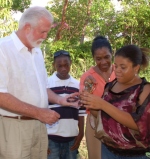
Be the best that you can be, boys told
 (CNS): At the CAYS Foundation’s Annual Open Day at the Bonaventure Boys Home in West Bay, CITN reporter Kenneth Bryan, a former Bonaventure resident, urged youngsters to “never ever feel that because they grew up in the home, they can’t be all they can be.” Delivering the keynote address at the function, he said, “I (grew) to understand why I should behave and have respect for others; that people will not respect me if I don’t respect myself." (Left: Frances Bodden Home resident Claudia Smith shows her handiwork to Minister Mike Adam)
(CNS): At the CAYS Foundation’s Annual Open Day at the Bonaventure Boys Home in West Bay, CITN reporter Kenneth Bryan, a former Bonaventure resident, urged youngsters to “never ever feel that because they grew up in the home, they can’t be all they can be.” Delivering the keynote address at the function, he said, “I (grew) to understand why I should behave and have respect for others; that people will not respect me if I don’t respect myself." (Left: Frances Bodden Home resident Claudia Smith shows her handiwork to Minister Mike Adam)
Bryan continued, "I learned why making wrong choices were not of benefit to me, and I learned how to act, how to carry myself, and most importantly, I learned how everything I did at that moment in time, would affect my life in the future.”
According to a GIS release, Minister of Community Affairs and Housing Mike Adam urged closer collaboration between government and the community in order to enhance residential care for children. “We must ensure that all our children in residential care receive a decent quality of life, in comfortable surroundings; and have every opportunity to flourish, overcome their challenges and embrace the future,” he said.
Underscoring the importance of Cayman’s children to the Islands’ future, Mr Adam noted: “A key step in enabling young people to excel in life is to offer them educational programmes that combine academic instructions with the relevant vocational training and artistic training.”
This approach provides a wider choice of careers in a day and age when traditional jobs are fast disappearing. At the same time, he said it offers youth an outlet to express their creativity and use their talents positively.
Adam also lauded the CAYS Foundation, pointing out that staff members nurture a positive atmosphere for the children; and civic organisations, such as the Rotary Club, for contributing to Bonaventure’s development by donating and supporting the home’s mission over the years.
In addition to hearing inspiring words, the families, friends and community members in attendance were treated to a fashion show; quadrille dancing; and drumming, courtesy of the youngsters from the Bonaventure and Frances Bodden homes. They also admired the students’ arts and crafts, which included jewellery; a picnic bench, bookshelf and wooden sculpture; and quilts and cushions.
The minister congratulated the young people for taking the time to make the items. “I urge you, young people, to continue to identify and develop your talents and hone your skills, so you can gain the ability to do more, and do it well. Keep up the good work. It’s all about you becoming the best that you can be,” he said.
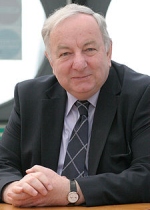
Lords debate UK relationship with OTs
 (CNS): Following the acceptance last month by the Bermuda government of four Chinese Muslim Uighurs, who were released from the US detention centre at Guantánamo Bay without the permission or knowledge of the British government, a member of the House of Lords suggested there was a case for a wider review of the position of the UK overseas territories. Noting that the UK has imposed direct rule on the Turks and Caicos Islands and the “problems in relations to” the use of OTs as tax havens, Lord Foulkes of Cumnock asked during a debate in the UK’s upper house of parliament whether it was time that an “overall, comprehensive consideration was given to the role of the overseas territories, their constitution and their future?”
(CNS): Following the acceptance last month by the Bermuda government of four Chinese Muslim Uighurs, who were released from the US detention centre at Guantánamo Bay without the permission or knowledge of the British government, a member of the House of Lords suggested there was a case for a wider review of the position of the UK overseas territories. Noting that the UK has imposed direct rule on the Turks and Caicos Islands and the “problems in relations to” the use of OTs as tax havens, Lord Foulkes of Cumnock asked during a debate in the UK’s upper house of parliament whether it was time that an “overall, comprehensive consideration was given to the role of the overseas territories, their constitution and their future?”
Foreign and Commonwealth Office (FCO) Minister of State Lord Malloch-Brown, however, disagreed but said the actions of the Bermuda government “shows that … really unfortunate slips can occur”.
While the FCO immediately stated its concern over the surprise move by the Bermuda government in June, according to The Royal Gazette, Premier Ewart Brown has since received a letter of thanks from US Secretary of State Hillary Rodham Clinton, who wrote: “I hope that your courageous action will inspire others to step forward and join us in the ongoing effort to close Guantánamo Bay Detention Center. Indeed, Bermuda’s leadership significantly advanced that effort.”
In the House of Lords debate on 13 July, Lord Wallace of Saltaire asked whether negotiations between British Overseas Territories and the US for the acceptance of detainees formerly in United States custody fall within their delegated authority for conducting international negotiations. It did not, said Lord Malloch-Brown, noting that the external affairs of a territory remain part of the special responsibilities of the governor under each territory’s constitution.
“Is it not extraordinary that the Government of Bermuda negotiated directly with the United States Government that senior members of the White House staff would accompany the Uighurs from Washington to Bermuda without informing the British Government?” asked Lord Wallace. “Do the government think that it is possible to sustain the current relationship with our overseas territories in the western Atlantic and the Caribbean, given the extent of their dependence on the United States for American money—legal and illegal—in those territories and the extent to which the American Administration now expect to influence what goes on in those territories, and I have not even mentioned Grenada yet?”
(In 1983, the Reagan administration sent forces to invade Grenada, ostensibly to protect US citizens.)
“My Lords, it is extraordinary,” agreed Lord Malloch-Brown. “Clearly, there was a real breakdown here. The United States has assured us that it understood that the Prime Minister of Bermuda had the right to negotiate in this case because he asserted such to them. It has led us to announce a review of the operation of this entrustment, but it is clear that there was a breakdown.”
Lord Foulkes then asked whether there was a case for a wider review of the position of UK overseas territories, “given that the Turks and Caicos Islands are subject to direct rule from the United Kingdom because of events there? Given the problems in relation to the use of overseas territories as tax havens, as well as the remarkable issue raised by the noble Lord, Lord Wallace, is it not about time that overall, comprehensive consideration was given to the role of the overseas territories, their constitution and their future?”
Lord Malloch-Brown said he thought that the overseas territories, “which have probably lived in the shadows of British foreign policy for a while,” were for a number of reasons becoming more central. “Tax havens and the impact on the economies of a number of these territories as a result of removing tax privileges, the broader impact of the economic crisis combined with the criminal issues with which some have been grappling because of their location and now this issue have put them front and centre again. It is in understanding what we do and do not delegate to them, and ensuring that they understand it, that the solution lies. I am not sure that a wider review is necessary for that commonsense to prevail.”
Asked whether similar issues had arisen following the invasion of Grenada in the 1980s, Lord Malloch-Brown said they did. “I suppose that we had hoped that they had been resolved then and that we had an understanding from future Administrations, particularly one as typically sympathetic as the Obama Administration. But it shows that even in this situation really unfortunate slips can occur.”
Meanwhile, The Royal Gazette notes that three marches were held in protest of Brown’s handling of the Guantánamo Bay affair and the United Bermuda Party led a vote of no confidence, which failed in the Bermuda House of Assembly.
The FCO has still not issued a statement concerning the appointment of Chris Bryant, the openly gay Welsh MP and former Anglican vicar, as Parliamentary Under-Secretary of State with responsibility for Overseas Territories.

House of Lords debates OT
Lord Wallace of Saltaire (Liberal Democrat)
To ask Her Majesty’s Government whether negotiations between British Overseas Territories and the Government of the United States for the acceptance of detainees formerly in United States custody fall within their delegated authority for conducting international negotiations.
Lord Malloch-Brown (Minister of State, Foreign & Commonwealth Office; Labour)
My Lords, negotiations between British Overseas Territories and the Government of the United States for the acceptance of detainees formerly in United States custody does not fall within the delegated authority for conducting international negotiations which has been given to any overseas territory. The external affairs of a territory remain part of the special responsibilities of the governor under each territory’s constitution.
Lord Wallace of Saltaire (Liberal Democrat)
My Lords, I thank the Minister for that Answer and I thank the Foreign Office for its useful briefing on general entrustments and individual entrustments, and the technical terms of which I had not been previously aware. Is it not extraordinary that the Government of Bermuda negotiated directly with the United States Government that senior members of the White House staff would accompany the Uighurs from Washington to Bermuda without informing the British Government? Do the Government think thatit is possible to sustain the current relationship with our overseas territories in the western Atlantic and the Caribbean, given the extent of their dependence on the United States for American money—legal and illegal—in those territories and the extent to which the American Administration now expect to influence what goes on in those territories, and I have not even mentioned Grenada yet?
Lord Malloch-Brown (Minister of State, Foreign & Commonwealth Office; Labour)
My Lords, it is extraordinary. Clearly, there was a real breakdown here. The United States has assured us that it understood that the Prime Minister of Bermuda had the right to negotiate in this case because he asserted such to them. It has led us to announce a review of the operation of this entrustment, but it is clear that there was a breakdown.
Lord Foulkes of Cumnock (Labour)
My Lords, does my noble friend agree that there is a case for a wider review of the position of our overseas territories, given that the Turks and Caicos Islands are subject to direct rule from the United Kingdom because of events there? Given the problems in relation to the use of overseas territories as tax havens, as well as the remarkable issue raised by the noble Lord, Lord Wallace, is it not about time that overall, comprehensive consideration was given to the role of the overseas territories, their constitution and their future?
Lord Malloch-Brown (Minister of State, Foreign & Commonwealth Office; Labour)
My Lords, I certainly think that the overseas territories, whichhave probably lived in the shadows of British foreign policy for a while, are for a number of reasons becoming more central, most of which have been mentioned in the previous two interventions. Tax havens and the impact on the economies of a number of these territories as a result of removing tax privileges, the broader impact of the economic crisis combined with the criminal issues with which some have been grappling because of their location and now this issue have put them front and centre again. It is in understanding what we do and do not delegate to them, and ensuring that they understand it, that the solution lies. I am not sure that a wider review is necessary for that common sense to prevail.
Lord Campbell-Savours (Labour)
My Lords, did not similar issues arise following the invasion of Grenada in the 1980s?
Lord Malloch-Brown (Minister of State, Foreign & Commonwealth Office; Labour)
My Lords, they did. I suppose that we had hoped that they had been resolved then and that we had an understanding from future Administrations, particularly one as typically sympathetic as the Obama Administration. But it shows that even in this situation really unfortunate slips can occur.
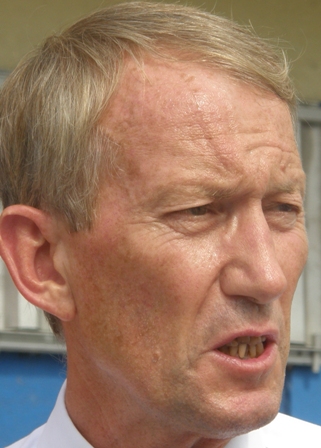
Senior cop concedes mistakes
 (CNS): The senior investigating officer on the enquiry into the murder of Brian Rankine told the court on the sixth day of William Martinez-McLaughlin’s trial that mistakes had been made during the investigation. On a day that took some unusual turns, including one police officer becoming ill in the witness box, defence counsel accused an officer of conspiring with the principal witness and suggested others lied about a missing machete. Peter Kennett (left) also revealed that he was concerned about a number of things that had appeared to go wrong with the evidence — from the failure to analyse the defendant’s clothing to missing video tape.
(CNS): The senior investigating officer on the enquiry into the murder of Brian Rankine told the court on the sixth day of William Martinez-McLaughlin’s trial that mistakes had been made during the investigation. On a day that took some unusual turns, including one police officer becoming ill in the witness box, defence counsel accused an officer of conspiring with the principal witness and suggested others lied about a missing machete. Peter Kennett (left) also revealed that he was concerned about a number of things that had appeared to go wrong with the evidence — from the failure to analyse the defendant’s clothing to missing video tape.
The first witness of the day (14 July), however, was RCIPS officer, Detective Sergeant Joseph Wright, who played a key role in the interviewing of the principal witness, Jason Hinds. He told the court that Hinds had reportedly asked to speak with him — rather than a lawyer who was made available to him — to reveal his account of the night of 16 May 2008, when Hinds alleges that he witnessed Martinez-McLaughlin murder Brian Rankine but that he himself had not played a part in the killing.
Solicitor General Cheryll Richards took Sgt Wright through his statement regarding the night of the murder, the discovery of the van that had been witnessed at the scene, the subsequent arrest of Hinds and McLaughlin, searches at Hinds home, where he had hidden his clothes, and finally where Hinds said McLaughlin had disposed of items related to the crime. She asked Sgt Wright about the account given to him by Hinds about the night in question and how he had been the first person to hear Hinds’ account of events.
Wright told the court how he had received a call from the custody officer saying that Hinds had asked to see him, but he was not sure why and how he had then gone to the cells and listened to Hinds’ account, taken notes and then asked him to sign them.
Following Richards’ examination of his witness testimony, defence lead counsel Mark Tomassi grilled Sgt Wright on how well he knew Hinds from Jamaica and why exactly it was him that Hinds had wanted to see privately at the police station rather than a lawyer. He queried why Sgt Wrights’ statement regarding the events was not dated and why he had not tape recorded his first private interview with Hinds. Sgt Wright said that only around five officers in the RCIPS were trained to do taped interviews and he was not one of them.
Although Sgt Wright acknowledged a vague acquaintance with Hinds, he denied any significant connection with him or his family other than having “seen him on the road” in Spanish Town where they were both from in Jamaica. Despite Tomassi’s accusations that Hinds had recognised Sgt Wright as a friendly face, Sgt Wright persistently denied any serious knowledge of the principal witness and said he did not know why Hinds had asked for him in particular and they did not discuss knowing each other from their native country.
Sgt Wright also denied ever seeing an ice pick, which Hinds had said was taken from the van, or the machete at anytime during the investigation.
Tomassi accused Sgt Wright or “soft soaping” Hinds, of giving him special treatment and making a deal with him and helping him to concoct a story to ensure he would get away with murder. The defence lawyer said that his claims of merely seeing Hinds on the road in Jamaica were “poppycock” and that Sgt Wright was in fact Hinds’ friend. Sgt Wright vehemently denied the allegation and said he had done nothing wrong or inappropriate in his handling of Hinds.
The next witness to take the stand was the deputy senior investigating officer, Lauriston Burton, who was the officer that had taken the machete into custody during the search of Hinds’ house the night after the murder. However, Burton became visibly ill during his testimony and was allowed to stand down, but not before he told that court how he had recovered the machete from Hinds’ house and shown it to scenes of crime officers, who he said had dismissed it because there was no blood on it (though both officers have denied seeing the machete at any time during earlier testimony).
Following a short adjournment, the court head that Burton was suffering from exhaustion and would not be able to continue with his witness statement that day, and as a result the court called Senior investigating Officer Chief Inspector Peter Kennett to the stand.
Richards asked Kennett about the investigation and the questions that had been raised during the trial about the evidence which was in police custody and some of the apparent mistakes that had been made. Kennett admitted that it had recently been brought to his attention that there had been some problems with the continuity of evidence.
When Tomassi began his cross examination he asked Kennett exactly what was going on. He pointed to the missing video tape evidence, the missing knife, the machete that was seized but did not get sent for analysis and the fact that the clothes McLaughlin was wearing when he was bought to George Town Police Station were not sent for testing either. He told Kennett that his officers were offering conflicting testimony to the court over both the machete and the knife and asked him why — a question Kennett said he could not answer.
Kennett said he took full responsibility for what had gone wrong but could not explain why the expected protocol had not been followed. He said that was the reason why he had what he described as something of a “dickey fit” when he realized on the morning of the trial that McLaughlin’s clothes had never made it to the lab. He admitted not knowing that the machete was missing until Burton told him about that as well on the first morning of the trial.
He acknowledged it was a mistake that the machete had not been sent for analysis, but when questioned about the decision to accept Hinds’ account and charge McLaughlin for the murder, Kennett said it was nothing to do with being duped but that there was compelling evidence as to why that had happened.
Kennett noted that Hinds’ clothes, although they had some blood the stains, were not consistent with someone who had committed this murder where there was clearly an awful lot of blood. He said he never closed his mind during the investigation but when Hinds began to relate his story he was being open and honest with officers and gave a full and detailed account of the night of the murder.
Kennett stood by both officers Wright and Burton and denied that they would ever be complicit in attempting to convict an innocent man and let a guilty man go free. “That would be abhorrent to them,” Kennet told the court.
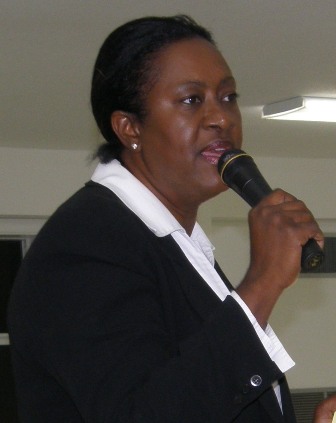
Pitcairn tackling employment
 (CNS): Former Bodden Town election candidate, Theresa Lewis-Pitcairn, says she intends to see through some of her campaign promises despite the fact that she was not elected to the Legislative Assembly. Concerned that Caymanians in her district are not only unemployed because of the decline in jobs but because they are hitting up against numerous barriers in their search for work, she has committed to getting involved in the process. She said she wanted to know where the problems and barriers were and when she found them she would do her best to expose them.
(CNS): Former Bodden Town election candidate, Theresa Lewis-Pitcairn, says she intends to see through some of her campaign promises despite the fact that she was not elected to the Legislative Assembly. Concerned that Caymanians in her district are not only unemployed because of the decline in jobs but because they are hitting up against numerous barriers in their search for work, she has committed to getting involved in the process. She said she wanted to know where the problems and barriers were and when she found them she would do her best to expose them.
During a specially convened unemployment forum at the Bodden Town Civic Centre on Monday evening, Pitcairn collected the names and details of people looking for work and told them that this was not a case of “Theresa finding people a job” but a concerted effort to work together to find out the main problems that seemed to be preventing them from finding work and discussed how they could be tackled. She noted that, while barriers were thrown up by others, as Caymanians they had to tackle their own barriers as well.
She spoke about not feeling inferior and recognising that they deserved a job, but she also said people had to be honest about their work ethic and she said they had to turn up on time every day and they could not expect bosses to accept the excuses about taking kids to school or other issues. She said it was time for Caymanians to stop being passive and to take action.
Pitcairn said her focus would be on getting down to the root of the problem and tackling some of the complaints made by Caymanians time and time again when looking for work. These included being told by employers when they apply for a post that there is no point because the vacancy is already taken by a work permit holder – despite the fact that this is illegal.
One member of the audience noted that the problem was that immigration generated so much revenue from work permits that they were reluctant to enforce the law and that major employers were able to manipulate the boards by threatening to take their business away from the island.
Another person pointed out that wages were being driven down and skilled Caymanian workers, such as carpenters, were being offered wages well below their value, but if as Caymanian workers they refused to work for the low rates they were seen as trouble makers.
Theresa said she was very concerned about that and noted employers were “importing poverty” by driving down wages through the use of overseas labour from developing countries. Pitcairn said she did not blame the workers but the employers. These, she said, are often Caymanian or foreign employers being fronted by Caymanians who do not take any interest in the businesses they are supposed to be involved with.
However, she pointed out that her fellow election candidate for George Town, Walling Whittaker, was also tackling the problem of low rates in the construction sector and trying to put together an organisation of workers. Pitcairn shied away from using the word unions as she said people saw that as a “dirty word”, but she said developed countries had formed them for good reason to protect wages and employment conditions.
The former Bodden Town candidate, however, promised that she would be following through with the people in the roomwho were applying for work and finding out if the Department of Employment Relations (DER), the Immigration Department and the Work Permit and Staging Plan boards were doing their job to protect and help local workers. She said it was her intention to expose wherethe process was going wrong.
“When immigration and the DER can’t tell us why we can’t get the jobs, we have to find out why,” she said. “It is not business as usual; we cannot sit back anymore; we must get to the bottom of this.”
Pitcairn also introduced the audience to Matthew Lesley, a young Caymanian who has a number of business interests in the security arena who said that he does pay his guards a living wage and had vacancies. But he lamented some of the problems he has had with Caymanian workers though, on the other hand, many of his local guards were the best he had. He said anyone with the right attitude to work could make a good living working for him, and he asked people to let him know if they were interested but that he didn’t want people who would disappear after getting their first cheque.
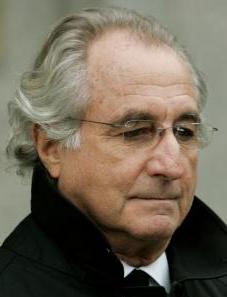
HSBC & Cayman fund face suit in Madoff liquidation
 (Bloomberg): HSBC Holdings Plc and a Cayman Islands-based hedge fund have been sued by the trustee liquidating Bernard Madoff’s business over claims they withdrew $578 million in “fake” profit from the con man’s firm before it collapsed. The lawsuit, filed by trustee Irving Picard in U.S. Bankruptcy Court in Manhattan, claims London-based HSBC withdrew most of the money on behalf of its client, Herald Fund Spc, less than 90 days before Madoff’s firm began liquidating. Picard says such transfers are recoverable under U.S. bankruptcy law.
(Bloomberg): HSBC Holdings Plc and a Cayman Islands-based hedge fund have been sued by the trustee liquidating Bernard Madoff’s business over claims they withdrew $578 million in “fake” profit from the con man’s firm before it collapsed. The lawsuit, filed by trustee Irving Picard in U.S. Bankruptcy Court in Manhattan, claims London-based HSBC withdrew most of the money on behalf of its client, Herald Fund Spc, less than 90 days before Madoff’s firm began liquidating. Picard says such transfers are recoverable under U.S. bankruptcy law.
Couple die at suicide clinic
(Daily Mail): The son of one of Britain’s most respected musicians told yesterday how he wept as he watched his father and mother die hand in hand at the Dignitas suicide clinic in Zurich. Distinguished orchestral conductor Sir Edward Downes, 85, and his 74-year-old wife Joan died from barbiturate poisoning as their children sat with them. Lady Downes had terminal cancer of the liver and pancreas while her husband was nearly blind and increasingly deaf. Their son Caractacus, 41, said: ‘They drank a small quantity of clear liquid and then lay down on the beds next to each other. ‘They wanted to be next to each other when they died. They held hands across the beds.’